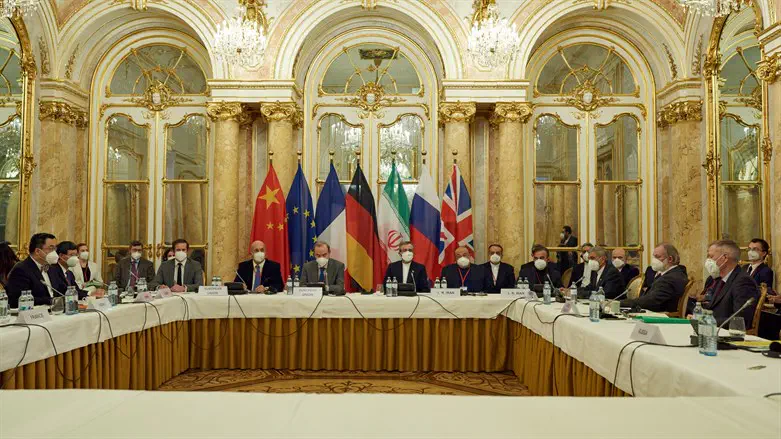
The Biden administration discussed with its European and Israeli partners in recent weeks a proposal for an interim agreement with Iran that would include some sanctions relief in exchange for Tehran freezing parts of its nuclear program, 10 Israeli officials, Western diplomats and US experts with knowledge of the proposal told Barak Ravid of Axios on Monday.
The new approach by the Biden administration shows just how concerned the US is about recent advances in Iran's nuclear program. The US has not ruled out diplomacy on reaching an agreement to return to the 2015 nuclear agreement but did take it off the agenda last year over Iran's military assistance to Russia and Tehran's crackdown on anti-government protests.
The Biden administration started discussing the new approach in January and briefed its Israeli and E3 — France, Germany and the UK — allies about it in February, according to the 10 sources.
The proposal discussed included some sanctions relief if Iran froze some of its nuclear activities, mainly halting enriching uranium at 60% purity, according to four of the Israeli officials, Western diplomats and US experts.
One Israeli official and one Western diplomat said the Iranians are aware of the U.S. discussions but have so far rejected the idea. Iran's Ministry of Foreign Affairs did not respond to Axios' request for comment.
The approach is similar to one led by White House National Security adviser Jake Sullivan and CIA director Bill Burns, who were senior members of the Obama administration in 2013 when Iran and world powers signed the 2013 Joint Plan of Action (JPOA), which included a short-term freeze on parts of Iran's nuclear program in return for partial sanctions relief.
The original interim agreement was for a period of six months and was renewed several times until the full nuclear deal was reached in July 2015.
A White House National Security Council spokesperson said President Biden is "absolutely committed to ensuring Iran never acquires a nuclear weapon, and we still believe diplomacy is the best way to achieve that objective."
The spokesperson added that the administration is preparing for all possible options and contingencies in full coordination with its partners and allies, including Israel. But the White House "will not comment on second-hand rumors about diplomatic discussions, other than to caution that nearly all such rumors are false."
The International Atomic Energy Agency (IAEA) recently announced that its inspectors in Iran had found uranium particles enriched to nearly bomb grade, or 90 percent, at the Fordow plant.
Tehran has denied the claims, saying it had not made any attempt to enrich uranium beyond 60 percent.
The discovery of the uranium came as talks between Iran and world powers on reviving the 2015 Iran nuclear deal remain stalled and have been since September.
At that time, Iran submitted a response to a European Union proposal to revive the deal. A senior Biden administration official said the Iranian response "is not at all encouraging.” A US official later said that the efforts to revive the 2015 Iran nuclear deal have “hit a wall” because of Iran's insistence on the closure of the UN nuclear watchdog's investigations.
Despite the discovery of the highly enriched uranium, CIA Director William Burns said in late February that the US believes Iran hasn't yet decided to resume its nuclear weapons program.

